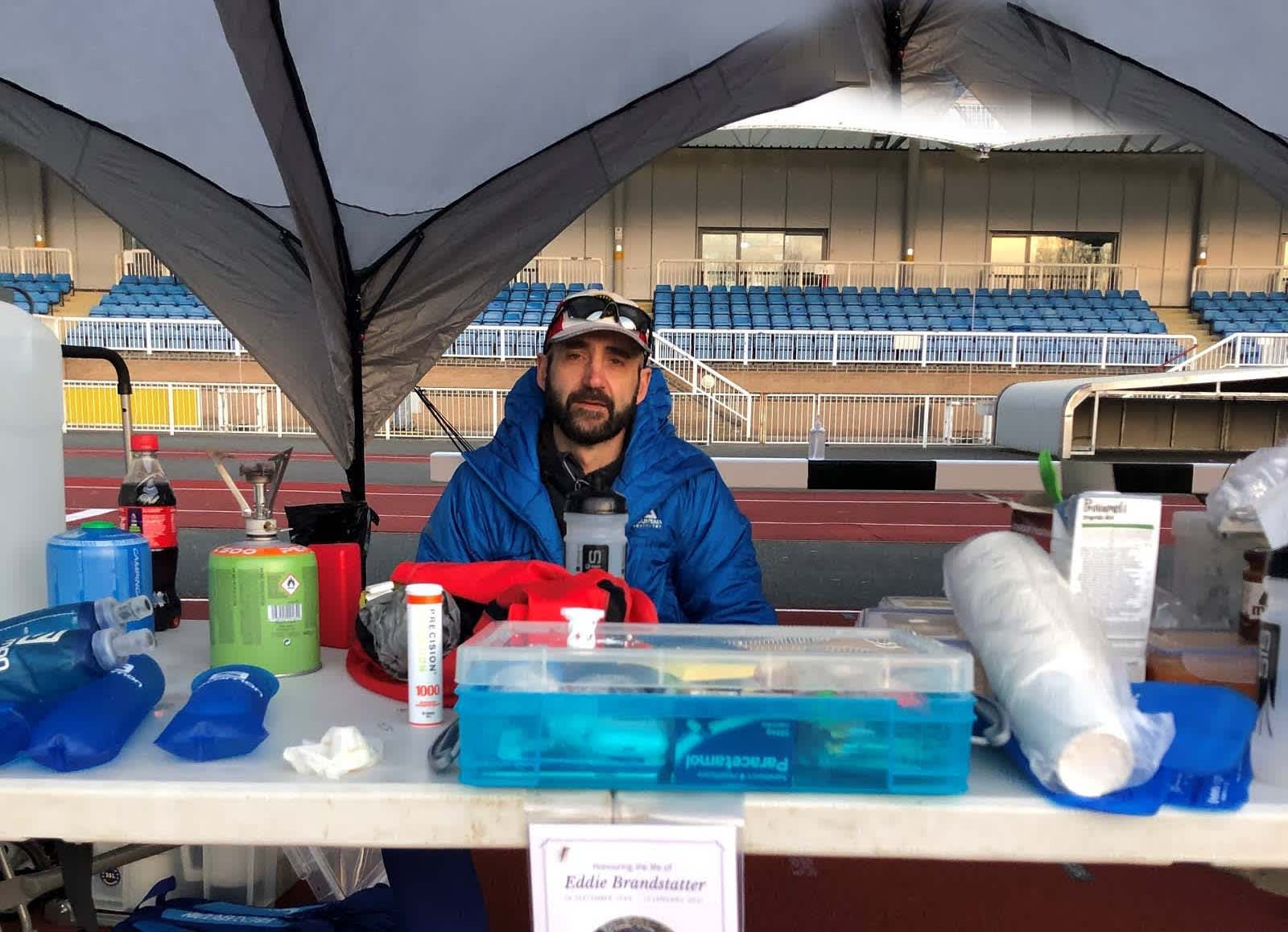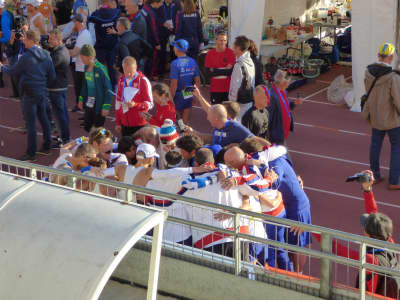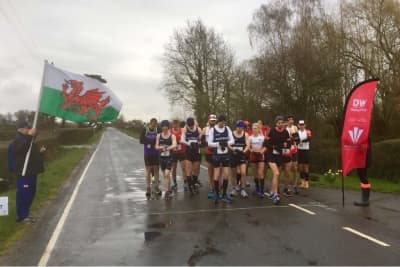The run I imagined was long. It had no end, only an infinite path to exhaustion and oblivion. There would be darkness and rain, and nothing would get in the way. I would run through the pain until I felt nothing at all. And when it was over I would be broken, but at least I would understand.
I can’t even remember where I was standing when I imagined that run. What I remember best is the all-consuming dread. For two weeks my oldest friend had looked back at me from his hospital bed, locked in his struggle to breathe. Now he was being rushed onto a ventilator. How would I get through the hours and days if we lost him. Where would I find darkness thick enough to escape from thought? Drink? Music? Rage? But then I imagined it and I knew what I would do: I would run.
The following night, we lost my friend. As he was taken off the ventilator, his unimaginably brave wife and daughter were finally allowed inside to say goodbye. At home, Jane and I sat stunned, numb, half-hoping for a miracle. I drank some gin, then some more. Not too much though, knowing I would be needed. I sat in the dark and cried, spoke on the phone and did my best to help. Then I tried to sleep. There was no run that night.
The next morning I awoke to find it was real. The world had lost so much of its colour and light. I got up, ate, answered messages, tried again to help. I sat staring at my phone. And then it was time. I put on my running shoes, stepped outside, and began.
The day was bright - cold but dry. My legs felt heavy and tired. At the first major road, the river of traffic forced me to wait. I imagined my friend in places I passed, and knew I would now see him there forever: standing beneath a favourite tree, sipping a beer in a pub he’d never actually visited. I spoke to him as I ran, feeling the breath scraping hard against my throat.
After a few miles I reached a hill. My heart beat loudly in my ears as I climbed. At the top I stopped, breathing hard, and looked out towards the city. The wind was cold in my face, filling my eyes with tears. In my mind I saw the rest of the run: how the urban blocks would turn to parks, the parks to fields, the light to darkness as the daylight faded into night. And that’s when I knew that it was over. There would be no epic run, no cathartic dash to oblivion. I was just too tired. Too tired to reach complete exhaustion; the irony almost made me smile. And then I turned around and slowly made for home.
In the weeks that followed, running was hard. Some days were better than others, but I would put the toll at easily 15-20 seconds per mile. That’s how much slower than normal I often ran for the same level of effort. The running helped me through the mental and emotional struggle, but the physical cost of the loss was very real. It lasted at least a couple of months.
I was through that physical struggle, and a further month on, when I stood on the starting line of my next major race, the Centurion Track 100. In many ways it was my dream race: one hundred miles on the track with a small, elite field, and the chance for a fast time. From my crew table I hung a picture of my friend. I would honour him and the pride he had in me – and I would draw courage and inspiration from this when things got tough. Eight hours later and many miles short of the end, my race was over. I had dropped out. There were many reasons why, and I have no excuses. But when I looked for inspiration, all I found was darkness. In that place in our minds we go to when things get tough, was only emptiness. I was out of resources, drained, exhausted.
We carry the grief in our hearts, but also in our heads, our lungs and our legs. Loss can inspire and motivate but it also erodes and drains. The joy of movement is a gift that can help us find a way through to the other side, but perhaps as we run we should do so without comparison to easier times. To leave the watch at home. To race in their name, but without the demands of high performance. To understand that it will take time, and to be patient and kind with ourselves. Just as the one we lost would want us to do.





